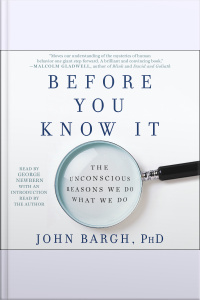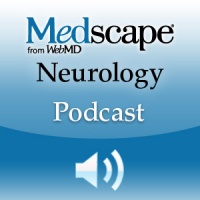Sinopsis
New research and clinical trials yield frequent developments in neuroscience and mental health. ReachMD welcomes an array of leading thinkers who lend their focused expertise to these principles, central to human function and ability.
Episodios
-
Tackling Concussions in Youth Football: Are Children Safe?
17/01/2017Host: David Weisman, MD Dr. David Weisman explores a study from Wake Forest School of Medicine that examined the effects of concussions for youth football participants.
-
Drug-Free Brain Health: Treatments Using Virtual Reality and Video Games
11/01/2017This week hosts Mark Masselli and Margaret Flinter speak with renowned neuroscientist Dr. Adam Gazzaley, Director of the Neuroscience Imaging Center and Gazzaley Lab at UC San Francisco. Dr. Gazzaley discusses his closed loop system designed to improve brain function through personalized game design and feedback, which are already undergoing FDA clinical trials for therapeutic interventions for a number of brain disorders including ADHD, aging brain, PTSD and addiction.
-
Introducing Telepsychiatry: How Technology is Revolutionizing Mental Health Services
09/01/2017Host: Tim Rush Guest: Fred Moss, MD In today’s fast paced world, it can be hard for people to find time in their busy schedules for even the most accessible mainstays of psychological treatment, such as talking to a therapist. Dr. Fred Moss, a Board Certified Psychiatrist and practitioner in the emerging telepsychiatry field, is helping usher in a new response to this problem by utilizing virtual psychiatric services. Is this approach as effective as the in-person visit?
-
The Rising Diabulimia Epidemic: Safeguarding Diabetic Patients with Eating Disorders
19/12/2016Host: Brian P. McDonough, MD, FAAFP Diabulimia, defined as the manipulation of insulin treatments by Type 1 diabetic patients in order to lose weight, is a rising problem among teens and young adults in the U.S, particularly young women. Joining Dr. Brian McDonough to discuss this dual diagnosis phenomenon of diabetes and eating disorders, ways in which they exacerbate other disease processes, the long term consequences, and management priorities for phycisians is author and registered dietitian Susan Weiner. Susan is a recipient of the AADE Diabetes Educator of the Year award and has devoted much of her writing and clinical expertise to addressing diabulimia in at-risk patients.
-
Future Diagnostic Criteria for Autism Spectrum Disorder
17/12/2016Host: Paul Rokuskie As medical professionals gain better understandings of the etiologies, mechanisms, and progressions of autism spectrum disorder, they are looking for ways to standardize this diagnosis. This creates new needs to change the way autism is conceptualized clinically, from severity scales to behavioral impacts on quality of life. Host Paul Rokuskie welcomes Dr. Sven Bolte, Professor of Child and Adolescent Psychiatric Science and Director of the Center of Neurodevelopmental Disorders at Karolinska Institute in Stockholm, Sweden. The two discuss the complex process for building new diagnostic criteria for autism spectrum disorder.
-
Pioneering Research Avenues for Autism Spectrum Disorder
28/11/2016Host: Paul Rokuskie New research is vital toward better understanding the complexities of autism spectrum disorder. Joining host Paul Rokuskie to discuss the latest research projects striving to identify the underlying causes as well as effective treatments for autism is Dr. Robert Schultz, Director of the Center for Autism Research at Children’s Hospital of Philadelphia.
-
Finding Personal Fulfilment at Work and Home
20/11/2016Host: Brian P. McDonough, MD, FAAFP Dr. Brian McDonough explores the importance of finding personal fulfilment in work and home life with Dr. William Schiemann, CEO of Metrus Group and author of Fulfilled! Critical Choices: Work, Home, Life.
-
Tissue-Specific Protein Clusters May Help Predict Risk of Alzheimer’s Disease
25/10/2016A protein homeostasis signature in healthy brains recapitulates tissue vulnerability to Alzheimer’s disease Rosie Freer, Pietro Sormanni, Giulia Vecchi, Prajwal Ciryam, Christopher M. Dobson, and Michele Vendruscolo Science Advances 10 Aug 2016: Vol. 2, no. 8, e1600947 DOI: 10.1126/sciadv.1600947 Abstract: In Alzheimer’s disease, aggregates of Aβ and tau in amyloid plaques and neurofibrillary tangles spread progressively across brain tissues following a characteristic pattern, implying a tissue-specific vulnerability to the disease. We report a transcriptional analysis of healthy brains and identify an expression signature that predicts—at ages well before the typical onset—the tissue-specific progression of the disease. We obtain this result by finding a quantitative correlation between the histopathological staging of the disease and the expression patterns of the proteins that coaggregate in amyloid plaques and neurofibrillary tangles, together with those of the protein homeostasis components that regula
-
The Astute Primary Care Clinician's 3 Keys to Improving Alzheimer's Care
02/10/2016Host: Matt Birnholz, MD Guest: Marwan Noel Sabbagh, MD, FAAN, CCRI Dr. Marwan Sabbagh, Professor of Neurology and Chief of the Memory Disorders Division at Barrow Neurological Institute, describes some of his key priorities for the current and future state of Alzheimer’s care. Uncover the truth about Alzheimer's in the non-certified educational series, Alzheimer's Disease: Towards Earlier Detection
-
Screening & Detection Tests for Alzheimer's Disease: The Benefits & Costs
02/10/2016Host: Matt Birnholz, MD Guest: Douglas Scharre, MD, CMD Dr. Douglas Scharre, Professor of Clinical Neurology and Psychiatry with the Center for Cognitive and Memory Disorder at The Ohio State University Wexner Medical Center, speaks to the methods used for early detection of Alzheimer’s Disease, and their respective advantages vs costs in clinical practice. Uncover the truth about Alzheimer's in the non-certified educational series, Alzheimer's Disease: Towards Earlier Detection
-
Why Patients Delay Seeking an Early Diagnosis for Alzheimer’s Disease
02/10/2016Host: Matt Birnholz, MD More than half of those seeking a diagnosis for dementia have delayed going to their doctor by at least a year, according to a survey carried out by the Alzheimer’s Society of Great Britain. Dr. Matt Birnholz reports. Uncover the truth about Alzheimer's in the non-certified educational series, Alzheimer's Disease: Towards Earlier Detection
-
Alzheimer's: A Hidden Disease in More Ways Than One
02/10/2016Host: Matt Birnholz, MD Guest: Carol Lippa, MD Dr. Carol Lippa, Professor of Neurology & Director of the Memory Disorders Program at Drexel University College of Medicine, member of the Board of Directors for the Alzheimer's Association, and Chair of the Delaware Valley Chapter’s Medical & Scientific Committee, reveals the biological, social, and stigma-based ways in which Alzheimer's remains the most prominently "hidden" disease in America. Uncover the truth about Alzheimer's in the non-certified educational series, Alzheimer's Disease: Towards Earlier Detection
-
Understanding the Pathophysiology of Alzheimer's Disease
02/10/2016Host: Matt Birnholz, MD Guest: Douglas Scharre, MD, CMD Dr. Douglas Scharre, Professor of Clinical Neurology and Psychiatry and Director of the Center for Cognitive and Memory Disorders at The Ohio State University Wexner Medical Center, describes updated perspectives and understandings on the pathophysiology for Alzheimer's disease. Uncover the truth about Alzheimer's in the non-certified educational series, Alzheimer's Disease: Towards Earlier Detection
-
Why Early Detection for Alzheimer's Disease Is So Critically Important
02/10/2016Host: Matt Birnholz, MD Guest: Douglas Scharre, MD, CMD Dr. Douglas Scharre, Professor of Clinical Neurology and Psychiatry and Director of the Center for Cognitive and Memory Disorders at The Ohio State University Wexner Medical Center, explains the importance of early detection for Alzheimer's disease on patient quality of life, as well as broader impacts on American healthcare systems. Uncover the truth about Alzheimer's in the non-certified educational series, Alzheimer's Disease: Towards Earlier Detection
-
Recognizing the Spectrum of Signs and Symptoms for Alzheimer's Disease
02/10/2016Host: Matt Birnholz, MD Guest: David Weisman, MD Dr. David Weisman, neurologist with Abington Neurological Associates and Director of Abington Neurologic Association's Trial Center, talks about expert approaches to recognizing the signs and symptoms for Alzheimer's disease. Uncover the truth about Alzheimer's in the non-certified educational series, Alzheimer's Disease: Towards Earlier Detection
-
Addressing Barriers to Early Detection for Alzheimer's Disease
02/10/2016Host: Matt Birnholz, MD Guest: Marwan Noel Sabbagh, MD, FAAN, CCRI In efforts to detect and diagnose Alzheimer's Disease, time is of the essence. But there are numerous barriers that clinicians face in practice to establishing a diagnosis quickly and accurately, which affects quality of care for patients. Joining host Dr. Matt Birnholz to address and consider solutions for these barriers is Dr. Marwan Sabbagh, Professor of Neurology and Chief of the Memory Disorders Division at the Barrow Neurological Institute. Uncover the truth about Alzheimer's in the non-certified educational series, Alzheimer's Disease: Towards Earlier Detection
-
Latest Methods to Early Detection for Alzheimer's: Cognitive Assessments and Diagnostic Tools in Practice
02/10/2016Host: Jennifer Caudle, DO Guest: Douglas Scharre, MD, CMD Cognitive assessment tools and detection tests for Alzheimer's disease are mutually designed to identify signs of cognitive impairment that are sometimes too subtle to catch by astute clinicians or even patients themselves. But what methods are available to help detect Alzheimer's as early as possible, and how do they impact quality of life for patients throughout the disease progression? Host Dr. Jennifer Caudle welcomes Dr. Douglas Scharre, Professor of Clinical Neurology and Psychiatry and Director of the Center for Cognitive and Memory Disorders at The Ohio State University Wexner Medical Center. Uncover the truth about Alzheimer's in the non-certified educational series, Alzheimer's Disease: Towards Earlier Detection
-
Mechanisms of Alzheimer's Pathogenesis: How Disease Origins Guide Early Detection Practices
02/10/2016Host: Matt Birnholz, MD Guest: Carol Lippa, MD Understandings of the origins and mechanisms of Alzheimer's disease are evolving constantly, opening doors to improved targets for therapeutic research. But at a time when disease-modifying therapies for advanced Alzheimer's aren't yet available, the need for early detection becomes critically important to help protect quality of life for patients. Host Dr. Matt Birnholz welcomes Dr. Carol Lippa, Professor of Neurology & Director of the Memory Disorders Program at Drexel University College of Medicine. Dr. Lippa is a member of the Board of Directors for the Alzheimer's Association and Chair of the Delaware Valley Chapter’s Medical & Scientific Committee. Uncover the truth about Alzheimer's in the non-certified educational series, Alzheimer's Disease: Towards Earlier Detection
-
Recognizing Alzheimer's Disease at the Earliest Stages: Key Signs and Symptoms
02/10/2016Host: John J. Russell, MD Guest: Howard Fillit, MD Quality care for patients with Alzheimer's disease starts with early recognition, which enables a timely diagnosis and subsequent intervention with the best available treatment and support options. As such, understanding the broad spectrum of signs and symptoms at the earliest stages of disease is absolutely critical. Joining host Dr. John Russell to discuss the keys to early recognition for Alzheimer's Disease is Dr. Howard Fillit, founding Executive Director and Chief Science Officer for the Alzheimer's Drug Discovery Foundation. Uncover the truth about Alzheimer's in the non-certified educational series, Alzheimer's Disease: Towards Earlier Detection
-
Hospital Records Predict Risk of Suicide
14/09/2016[Read the Article] Suicide is the 10th leading cause of death in the United States and identifying those at risk can be challenging. According to a new study, certain words in hospital discharge notes may be one way to identify patients who are at an increased risk of suicide. Researchers from Massachusetts General Hospital examined more than 450,000 patients’ discharge notes from 2005 to 2013. They analyzed these notes by using a sentiment analysis computer program which searches for positive or negative words. The researchers found that certain words like gloomy, unfortunate, and sad can predict a higher risk for suicide, as opposed to words like lovely, delightful or pleasant. In general, there is an elevated risk for suicide after hospital discharge so this is a moment for increased intervention. [Watch more videos of The JAMA Report]













